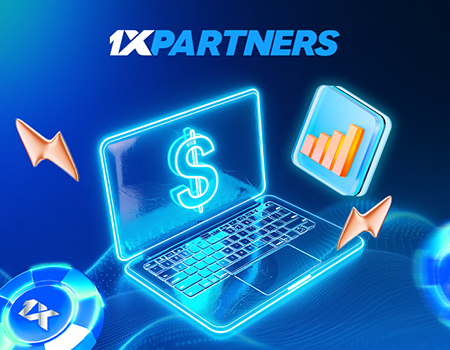Affiliate Marketing in Web3 is transforming affiliate programs: decentralization, transparent payments, and new opportunities for earning income.
Affiliate Marketing for Web3
Affiliate Marketing in Web3 opens up a new dimension of partnerships. Thanks to decentralization and blockchain, dependence on intermediaries disappears, and payments to partners are made automatically and transparently through smart contracts. This not only increases trust but also creates global conditions for cooperation, where each participant has equal earning opportunities.
How Web3 Changes the Affiliate Landscape
The transition to a decentralized paradigm opens up new scenarios for affiliate marketing that previously seemed almost impossible.
Trust is no longer based on a company’s reputation or third-party guarantees — it is embedded in the technology itself. Smart contracts become digital “arbitrators” that automatically determine whether the terms of the agreement have been fulfilled and immediately perform the calculation. This minimizes the human factor and virtually eliminates the risk of payment delays.
Another important aspect is globality. Web3 does not recognize geographical barriers, which means that partners from anywhere in the world have equal opportunities. That is why web3 affiliate platforms are positioned as tools of the future: they provide secure payments, currency universality, and full process visibility, which significantly increases the level of trust in the field of affiliate programs.
Affiliate Attribution in a Decentralized Environment
The traditional model of tracking conversions in affiliate marketing is based on centralized platforms and cookies that record user actions.
This means that even in the event of a dispute, participants can verify the data in a public registry. That is why Web3 affiliate programs are considered more honest, as every user action is recorded transparently.
At the same time, there are challenges. The technical complexity of integrating smart contracts and the high cost of transactions on popular blockchains sometimes become barriers to rapid implementation. But the emergence of web3 affiliate platforms based on more efficient networks (Polygon, Solana, BNB Chain) is gradually expanding opportunities for affiliates.
Decentralization is also giving rise to new reward formats. In addition to standard commissions, marketers can receive tokens, NFTs, or join programs with hybrid models. This not only opens up additional ways to monetize, but also forms closer ties between the brand and the affiliate.
Thus, the transition to Web3 is changing the very philosophy of attribution: from the control of centralized companies to transparent interaction in a decentralized environment, where trust, smart contracts, and common rules of the game enshrined in the blockchain play a key role.
Benefits of Affiliate Marketing in Web3
The advantages of affiliate programs in the Web3 space go far beyond the usual ideas about classic affiliate marketing. First and foremost, it is about trust, which is based not on companies’ promises, but on the immutability of data in the blockchain.
Smart contracts also play an important role. They work as automatic “arbitrators”: if the conditions are met, the reward is instantly transferred to the partner. This eliminates the payment delays inherent in traditional banking instruments. This is especially important for international campaigns, as the speed and predictability of payments are key factors in motivating affiliates.
Equally important is the freedom to choose payment methods. Participants can receive rewards in both national currencies and digital assets, opening up new horizons for flexible monetization. Web3 affiliate platforms provide this opportunity by combining technical solutions with the interests of both advertisers and partners.
Thanks to this approach, web3 in affiliate marketing creates an environment where long-term relationships are based on openness and predictability. This is not just another stage of evolution, but a turning point: data transparency, payment versatility, and global scale create conditions for a completely different level of partnership.
1xBet vs Web3 Affiliate Program
When it comes to web3 affiliate programs, the first thing that sets them apart is decentralization. Smart contracts ensure instant automation of payments, and conversions are tracked via blockchain. This looks innovative, but it also has its challenges: high token volatility, dependence on the crypto market, and technical barriers for newcomers.
In contrast, the 1xBet affiliate program remains a stable and proven solution. Here, affiliates get access to transparent conditions, clear program details commission, and 24/7 manager support. While Web3 platforms are just forming their ecosystem, 1xBet already has a system that has been refined over the years with a wide selection of tools for your audience: banners, tracking links, dynamic content.
Another important aspect is the commission amount. Web3 models often offer high paying percentages, but they depend on the unstable price of tokens. At 1xBet, rewards are clearly fixed: the partner understands how much they will receive for a player’s registration, deposit, or bet. This predictability makes the program more reliable, especially for those who are not ready to risk their income.
In addition, 1xBet affiliate marketing allows you to work with all classic attribution methods: from cookies to unique IDs. This minimizes the risk of losing customers, while Web3 models do not always have clear mechanisms for long-term tracking.
Thus, Web3 programs are interesting for those who are eager to experiment and are ready to dive into the world of blockchain, but for those who want to combine stability, proven tools, and guaranteed payouts, the 1xBet affiliate program remains the best choice.
The Future of Affiliate Marketing in the Web3 Era
The future of affiliate marketing is gradually shifting towards new formats, and Web3 in affiliate marketing is becoming one of the key areas. Decentralized ecosystems offer not only transparency thanks to blockchain, but also a new level of trust between brands and affiliates. When all transactions and clicks are recorded on the blockchain, this minimizes the risk of manipulation or hidden data loss.
In the coming years, Web3 affiliate platforms will come to the fore, offering smart contracts for automatic reward accrual, as well as the ability to work not only with fiat currencies but also with cryptocurrency assets. This means that partners will gain greater flexibility in payments and monetization tools.
Another prospect is the growing role of blockchain affiliate programs, which can ensure complete transparency and fairness in mutual settlements. Instead of the traditional approach with a long confirmation and payment cycle, Web3 offers an almost instantaneous process where affiliates can see their profits in real time.
Of course, this model has its challenges: the need for deeper technical understanding, dependence on the cryptocurrency market, and the lack of unified standards for all platforms.




